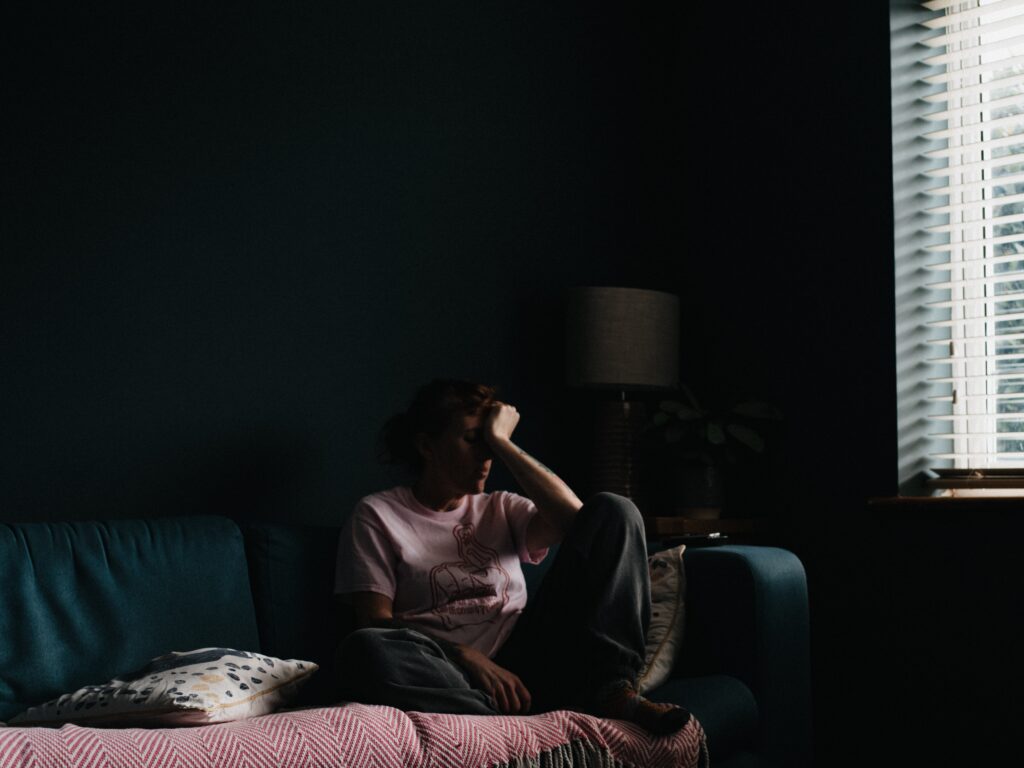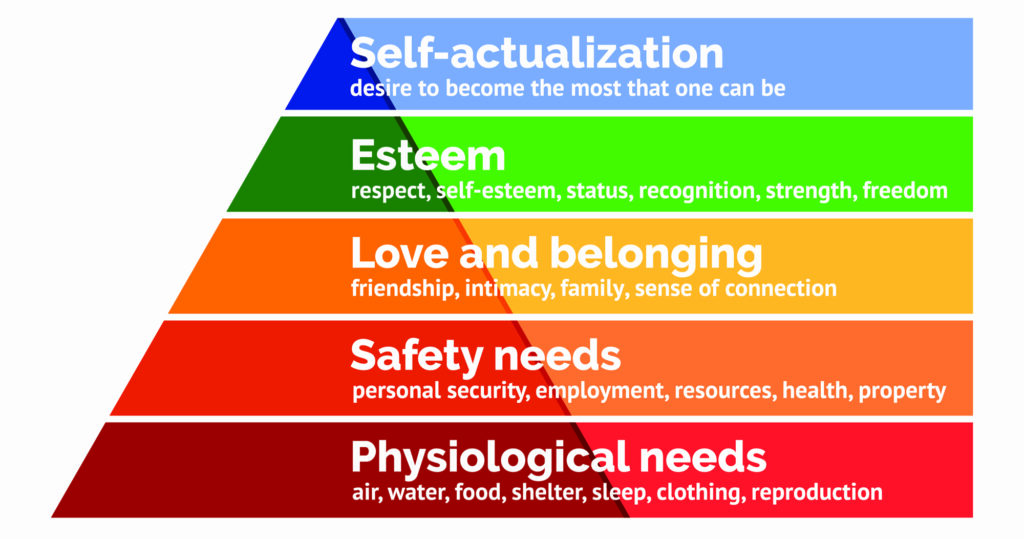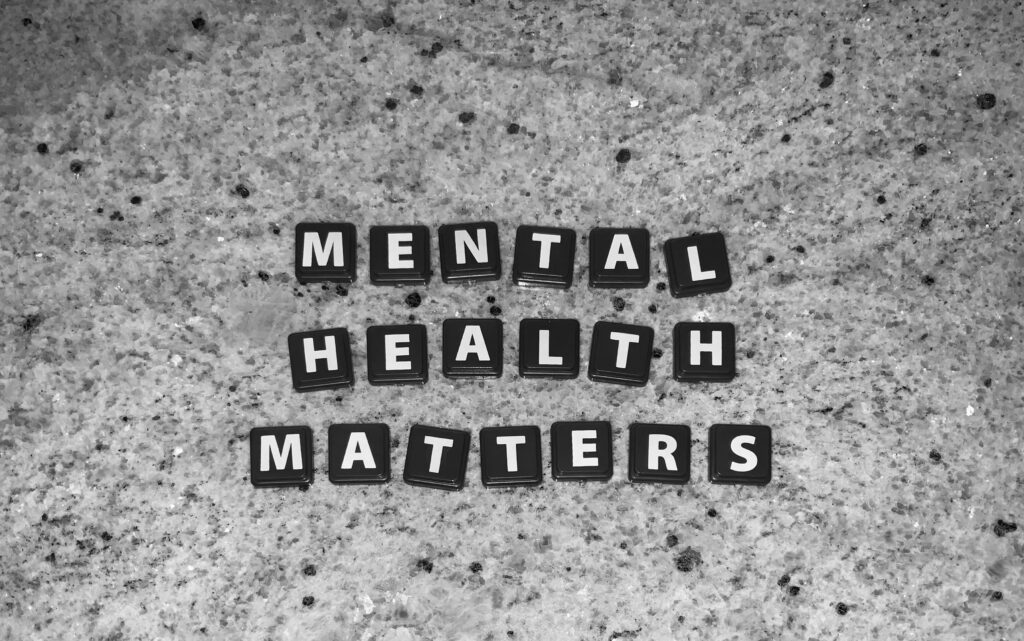Feeling that you’re not good enough and you’re not fully living your life authentically and there is no way to fix it can lead to desperation. You’re not the only one: these past years living with Covid-19 and its effects on our society have had a massive impact on our mental health.
However, even if we feel overwhelmed and drained, there are simple steps we can take to start feeling better and take our life back.
1. Find social support: you’re not alone in this
You may think that you’re left behind in the life competition, you’re losing the race. But if you stop for a second you will find out that this race doesn’t exist at all, and what you’re really losing is the authentic connection with others.
You don’t have to put a happy mask on and force yourself to interact with anyone, but self-isolation only makes you more miserable. You could find deep connections and support on these platforms:
Improspeak: build connections by being yourself

Improspeak is a solid app where you can talk and share your thoughts and feelings in a community of like-minded people.
The algorithm of Improspeak will match you with someone based on your shared interests and the topics you want to discuss, then you can start talking and get to know each other.
If you don’t know what to say or struggle to find topics to talk about, Improspeak gives you question cards that you can use to keep the conversation going.
A unique aspect of Improspeak is its way to keep moderation: after each chat, you will be able to rate your conversation buddy. This system keeps the community a safe space to build connections.
On this platform, you could learn that you’re not alone in this, and you can build meaningful connections with open-minded people.
Paltalk: find support anonymously

Paltalk is an anonymous app that allows you to enter live chatting rooms about various subjects, from animals to mental health.
You can go with the flow and pick a random room with a topic you’re interested in, or you can create a group and host your room about anything you want to discuss.
If you’re camera-shy, Paltalk provides a wide range of filters and video effects to help you share your feelings and experiences anonymously.
Reach out to people that make you feel appreciated
Be honest with your feelings and reach out to your friends and family. There’s no shame in asking for help if you’re struggling by yourself.
Maybe you could ask a friend to call you or text you when you’re feeling bad so that you don’t overthink alone.
These negative thoughts make you think you’re the only one not achieving accomplishments, that people are better than you, or they don’t like you and believe you are a burden.
But that’s just the pressure talking, and it doesn’t match the reality at all. If you get to listen to your friends’ thoughts, you will see that they all feel the same.
Your brain only lets you see one way of thinking, and it’s dark and negative. Challenge your head and give yourself a new perspective by talking to friends and family. You are not alone, and you are loved and important.
2. Take control of your thoughts and change them

A state of desperation may happen to many people in our lives and go unnoticed. Don’t beat yourself up for what you’re going through, and accept what you’re feeling.
You may think that suppressing your emotions and avoiding these feelings is the logical way to cope, but this is unhealthy and it’s probably the way to make things escalate.
Allow yourself to feel what you feel, don’t judge and accept these thoughts as they come and go. If you suppress your feelings, they will get bigger and find a way to come out, so just let them flow through your mind and body.
Consider mindfulness and journaling to express your thoughts and emotions. This practice could make you notice how specific thoughts repeat themselves and if they’re correlated with specific triggering times or situations.
Take control of this pattern and change the situation.
Try this exercise: check your mood three times a day and write down how you’re feeling in the morning, midday and afternoon. Include what you did and how it made you feel on a scale from one to ten.
If you struggle to be consistent with this exercise and keep track of your mood swings, valuable apps can help you with daily reminders and specific activities.
Change the perspective on what is actually meaningful in your life. Maybe you’re focusing on the wrong things, do they make you happy? Try writing down these prompts:
- What was the last time you felt proud of yourself?
- Which parts of your personality make you proud to be you?
- Which activities make you feel joyful like a child?
- What are you grateful for?
- If you could meet yourself as a child, what would you think of yourself as an adult?
- What are the things people love the most about you?
3. Accept your 4% of energy days

Desperation can lead to mental burnout if we overwork ourselves in this false “race” we said. Once we slow down we may find daily tasks heavier, and we find it challenging to keep ourselves clean as well as our space.
Accept that you’re not supposed to give 100% and “function” perfectly every day of your life and there will be 60% days as well as 4% ones because you’re human and life is not the same every day. Allow yourself to just survive your 4% days.
A helpful tip when you’re in “low-function” mode and life seems overwhelming is to break up the task into tiny steps and start by doing the first one. Do you need a shower? Start by letting the warm water run. Then, you can take your bathrobe and put it close to the bathtub, take off your socks, pants, shirt. Step by step, you’re in the shower. Decompose daily tasks in little steps and remember that one little step is better than nothing.
Do you need to take your meds after eating? Keep meds and crackers on your bedside table. Trick yourself by making things easier to do.
Don’t overthink daily tasks, and forgive yourself if you skip something. You didn’t brush your teeth in days, and you want to do it at a random time now? Just do it now; it’s better than not doing it because “it wasn’t the right time”.
If you can’t wash your hair, use dry shampoo. Use wet stripes if you can’t have a shower. A little hygiene is better than nothing, and you don’t have to beat yourself up.
Remember, you’re not lazy; you’re surviving. Don’t gaslight yourself!
4. Take your time to redescover joy

Your body is telling you it needs a break in the loudest way possible, listen to it!
Think about what you need physically and mentally, and start doing little things for yourself every day. If you’re feeling numb, think about things that used to make you feel joy and start by doing little steps.
Remember that there is no pressure to complete tasks or to be productive. Just do what makes you feel calm.
If you can’t take a vacation from your daily stress, you can still take care of yourself with little things every day and get things balanced.
Pick a time during your daily schedule to dedicate to yourself and your peace of mind. You can do something simple like meditating, reading a book before you go to sleep, taking a warm bubble bath, cooking your favourite dish by yourself, watching your favourite movie.
It’s even better if you start some physical activities like walking outside or dancing in your room. Your body is doing too much for you, so here is a breathing exercise you can do whenever you feel stressed: Breathe in for four seconds, hold your breath for four seconds, and breathe out for six seconds. Repeat this exercise until you feel calm again.
Self-care doesn’t necessarily mean spending money on vacations, massages or expensive treats. It simply means nurturing yourself by doing what gives you pleasure.
It might surprise you how you can learn to enjoy and value your own company!
5. Mens sana in corpore sano

Physical activity benefits not only your body but also your mind. There is a significant correlation between our mood and moderate exercise, especially with mental health issues such as anxiety and depression.
Exercise also alleviates symptoms like low self-esteem and social withdrawal.
The activation of your body and the exercise-induced blood circulation increase has an essential correlation with motivation, mood and memory.
There are many exercises you can do from your home, from yoga to high-intensity workouts; you just have to start. Remember: one single step is better than nothing.
6. You’re not a robot. Get that sleep

To “function” properly, we have different levels of needs, as explained by the psychologist Maslow in his famous pyramid scheme.
At the bottom of our needs, we have basic physiological ones like breathing, sleeping, eating, libido, homeostasis. To satisfy higher needs such as safety and self-esteem, we need to meet the basic ones.
Mental health issues have a significant impact on our physiological state. If we’re having a mental breakdown, we can quickly notice changes in our sleep, food, and libido habits.

People suffering from depression, stress or anxiety tend to sleep too little or oversleep, so it’s essential to keep a healthy sleeping routine to get back on track.
Notice if your sleeping habits have changed and how you can take them back to normal. Maybe you feel anxious and overthink at night, preventing yourself from falling asleep. You could try to do relaxing activities before you go to bed, such as a warm shower or a cup of relaxing herbal tea.
Avoid using the phone right before sleeping because the screen’s blue light keeps you awake. Be mindful of the food you consume before sleeping that could keep you awake, such as caffeine.
You can set a time to go to sleep, help yourself with specific apps like sleep monitor, or even do some relaxing meditation or ASMR.
Find what relaxes you and treat yourself!
7. Every problem seems small when you’re in nature

Spending some time in nature has a lot of benefits for your health. It can make you feel connected to the world and put things in perspective: you are not alone; you are part of this ecosystem like everyone else around you. A walk in a park can have relaxing effects and improve your mental and physical health.
There is a professional treatment called ecotherapy which involves doing activities outside combined with physical activity and social contacts. It has been shown to help with mental health problems such as anxiety and depression.
Being outside in natural light can be helpful if you experience seasonal affective disorder (SAD), also called seasonal depression, that affects people during darker and colder seasons or times of the year.
If you can’t go out in nature, bring nature into your house! Activities like gardening or growing plants can teach you how to cherish these moments, and by taking care of them, you learn to take care of yourself too.
8. Get the right fuel for your mind

As we said, eating habits could be affected by our mental state and vice versa.
You could lose appetite or overeat, and you can use some tips to keep a normal relationship with food.
If you catch yourself losing appetite and you’re too tired to eat, you can take preventive action by buying food that’s super easy to prepare or ready to eat.
Save your energy by eating crackers or sandwiches, tuna cans or ramen, and go with protein bars if this is still too much effort.
There is no judgment as long as you keep your body alive; you’re in survival mode when you’re suffering from a mental breakdown. If you feel you’re getting too tired to cook or go out eating, use this tip to always have something ready to eat with no effort.
Try to eat three times a day and set alarms to remind you, or ask a friend to facetime and eat with you if you need it.
Pay attention to what kind of food you’re putting in your body. Some foods make depression worse, like fast food and sugary ones, so try to consume depression-friendly foods such as fish, white meat, veggies and nuts.
Try to be mindful when you eat, do it slowly and avoid distractions, so you can let your body tell you when it’s full.
9. It’s hard to feel bad when you mean everything to them

How can you think poorly about yourself when a puppy is looking at you like that? Consider adopting an animal if you have the space, time, and money to welcome a pet in your home and life. Scientific studies show that living with a pet helps reduce stress, blood pressure and cardiac risks, other than significantly improving mental health.
Think about which pet you would prefer to have with you and look for animal shelters in your town. There are a lot of pets that feel lonely and need a forever home. You may save an animal’s life by adopting it and letting it be an amazing ally in your battle against your bad days. If you can’t adopt a pet, you could still volunteer in the animal shelter of your town, it will make a difference for you and for them!
10. When things are bigger than you

If these symptoms persist for an extended amount of time and you are struggling alone, you should consider discussing them with a therapist.
We often think we can get through things by ourselves. You may feel that you are not struggling enough to get help or that other people have it worse than you.
But we don’t need it to be harmful to ask for help, and we deserve to get help as much as other people because we all struggle sometimes, and nobody has to keep feeling like this.
You wouldn’t say: “you don’t deserve to be happy; some people are happier than you”, so thinking you don’t deserve help when you’re not ok because someone has it worse is pretty much the same. Why should you stay feeling bad? It doesn’t have to be this way, and you can get better.
If you’re considering seeing a therapist, you can look up different therapy specialists based on your needs and find a therapist near you.
During the pandemic, we’ve seen the development of several online therapy services because of social distancing, so if you don’t want to move from home, you can still start a therapy session online. Choose what is best for your needs and start getting better!
In conclusion
These are the best tips to overcome desperation, be patient with yourself and remember that what you’re feeling is absolutely normal! Whether you’re feeling this because of a specific situation in your life or without an apparent reason, you can start feeling better with these simple tips.
Don’t be afraid to ask for help if you need it and take care of yourself!




